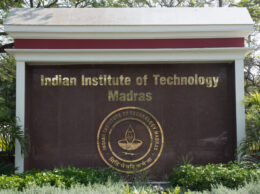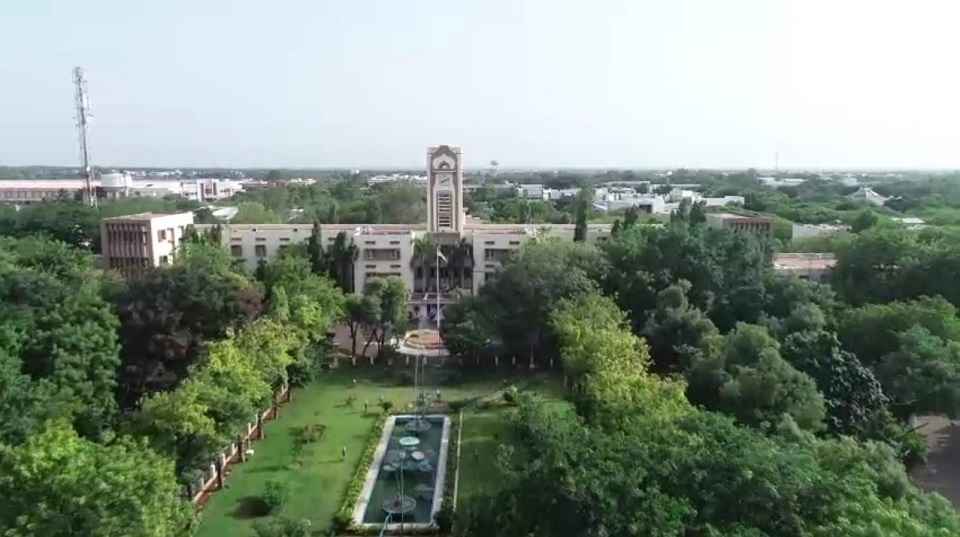Mandi, 29th October 2018: A total of 211 students graduated during the Sixth Convocation of Indian Institute of Technology Mandi held today (29th October 2018) in the presence of Faculty, Staff, Students, Parents and eminent personalities. This included 29 Ph.D. scholars, 11 M.S. (by Research), 28 M.Sc. (Chemistry), 11 M.Sc. Mathematics, 20 MTech. and 112 B.Tech. Students.
The number of Research Scholars graduating this year has increased to 40 compared to 31 (PhD-24, M.S. – 7) last year.
In a message shared to the institute for the occasion, the Honorable Prime Minister of India Shri Narendra Modi congratulated the graduating students and noted that despite being one of the youngest IITs in the country, IIT Mandi has emerged as a premier centre for engineering education and research, fulfilling the aspirations of the region.
Delivering the Chief Guest Address, Padma Shri Prof. Ashok Jhunjhunwala, Institute Professor, IIT Madras, said, “You are fortunate to graduate at a time when our nation is poised to grow out of its past and become a stronger nation. Each of you will indeed enjoy this but have a special role to play and owe great responsibility in getting us there.”
He said that a lot has to be done in the area of energy-storage to enable renewables to become the dominant source of energy for the nation and the world. And the students could dream of a fossil-free future, probably the only way the earth will have a future. Further, he added that by around 2030, most of India’s vehicles will be running on electric power. This will be a great disruption. The transition will not be smooth and if this is not handled well, it can result into major problems for our nation.
“You (students) are walking into the beginning of this transition. This alone will free India from being dependent on massive oil-imports and also from the huge pollution that petrol vehicles create. Your knowledge and skills, horned by this institute, could make a difference. Robotics, 3D-manufacturing, nano-materials have all arrived and is going to transform the society. You indeed are getting into fast-changing world. Your ability to learn new things, train and adopt yourself quickly, can get you to lead the world,” concluded Prof. Ashok Jhunjhunwala.
Since its inception in 2009, IIT Mandi has reached commendable heights. In this short span of time, it has become a fully residential campus with world-class academic and research facilities. Its’ vision is to be a leader in science and technology education, knowledge creation and innovation, in an India marching towards a just, inclusive and sustainable society.
Delivering the annual report, Prof. Timothy A. Gonsalves, Director, IIT Mandi, said, “In 2018, 193 B.Tech., 79 M.Sc., 110 M.Tech., and 13 M.A. students secured admission to IIT Mandi. We now have a total of 1,276 students including 274 Ph.D., 46 M.S. and 17 I-Ph.D. Research Scholars. In the 2017-18 placement season, 58 companies visit our campus at Kamand, which is the highest ever at our Institute till now. Among these companies more than 83 per cent were core companies.”
This year marked a significant increase in the number of sponsored research projects and total funding. The total number of projects sanctioned till date is 182 with a total sanctioned amount of over Rs. 80 Crore.
Further, he added that IIT Mandi researchers published 292 peer-reviewed articles during the Academic Year 2017-18. The total number of peer-reviewed publications from the institute in National and International journals was 1,271 (upto March 2018).
“A large number of IIT Mandi faculty also visited institutions in Europe, North America, Australia, South Asia and Latin America in 2017-18 for conferences, industry and academic collaborations. Faculty members also visited TU9 institutions in Germany in 2018 under BMBF-IIT Mandi faculty exchange program. Besides international students, more than 35 international faculty members visited IIT Mandi,” added Prof Gonsalves.
Currently, IIT Mandi has four schools: The School of Computing and Electrical Engineering, focusing on the key technologies of the Information Age; The School of Basic Sciences, which includes Mathematics, Physics, Chemistry and Life-Sciences; The School of Engineering that deals with principles such as classical mechanics, atomic physics, and thermodynamics; and the School of Humanities and Social Sciences that seeks to provide a good understanding of language, culture, sociology, economics, management and ecology.
Speaking on the occasion, Shri Subodh Bhargava, Chairman, Board of Governors, IIT Mandi, said, “This year faculty members visited SAARC countries to recruit students. We welcome students from Nepal and Bangladesh. IIT Mandi has also been appointed the nodal Institute for collaboration with German universities in the recently launched ‘Scheme for Promotion of Academic and Research Collaboration’ (SPARC) by the Ministry of Human Resource Development, Government of India.”
Addressing the gathering, Guest of Honour Shri Sonam Wangchuk, Education Reformer and Founding Director, Students’ Educational and Cultural Movement of Ladakh (SECMOL), said, “Earning money is not difficult but if your career solves problems of millions of people, then it is a life worth living… Mountains have lots of problems. It is an asset that an Institute like yours is in the mountains. The Mountains are minorities technologically as solutions for its problems won’t come from Delhi and New York. It has to be such institutions in the mountains and youngsters in these institutions who should come up with solutions.”
Mr. Sonam Wangchuk was presented the Award of ‘Eminent Technologist of the Himalayan Region 2018’ during the convocation.
Delivering the Valedictorian’s address, Ms. Neha Muthiyan, Computer Science and Engineering, said, “With the guidance of our senior batches, the faculty members and the staff, our batch played a small role in helping the institute grow. Be it research publications, setting new placement records, helping start the GSOC culture and volunteering to organize Exodia and Rann-Neeti in the most adverse situations. I strongly urge the upcoming batches to continue this culture and contribute more to it.”








